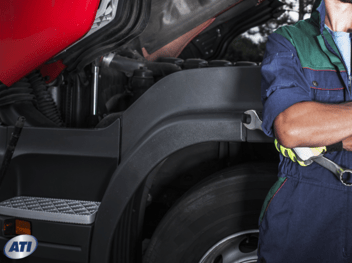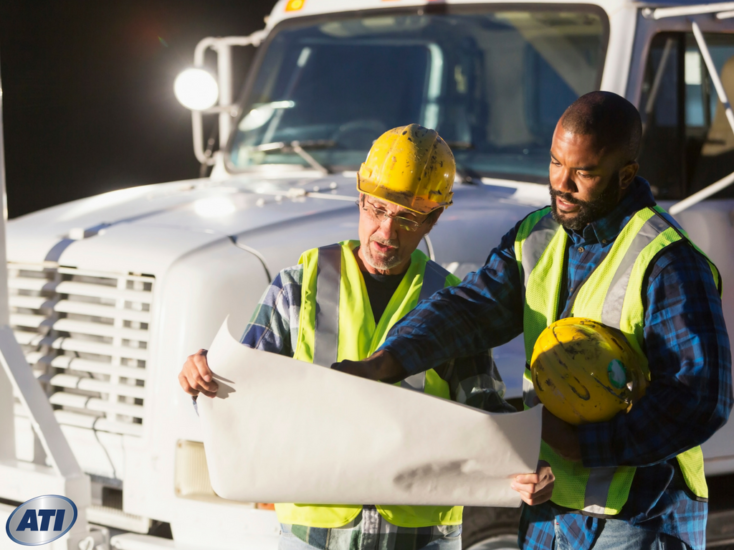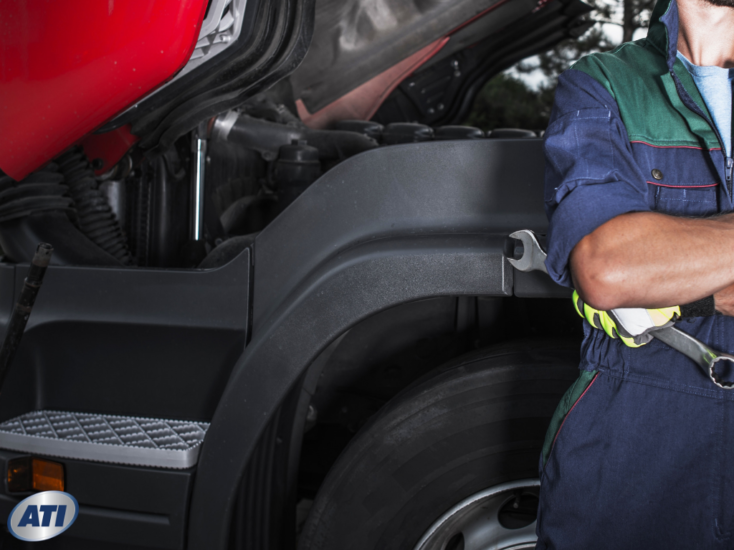What is Heavy Vehicle Repair Like in Hampton Roads, VA?

Heavy vehicle repair is a vocation that requires mechanics who can diagnose, maintain, and make repairs to equipment used in agriculture, construction, transportation, manufacturing, shipbuilding and repair, and road building. Technicians also need skills in tuning up and testing vehicles, in addition to replacing or repairing faulty parts.
What a Heavy Vehicle Mechanic Does
It’s a challenging job that requires some physical strength to lift parts and equipment and to operate heavy tools. It can require working outdoors in the elements for long hours, although sometimes heavy vehicle mechanics work in a garage. The mechanic may have to work in cramped conditions for long periods. Sometimes travel is required to reach equipment in the field that needs repair.
Some of the technical skills that heavy vehicle repair technicians may need:
- Electronics and ability to operate electronic diagnostic equipment
- Reading blueprints
- Mechanical aptitude
- Hydraulics knowledge
Heavy vehicle mechanics should also have good eye-hand coordination and manual dexterity.
Vehicles a mechanic might work on include bulldozers, boats, buses, large trucks, dump trucks, cranes, tractors, combines, harvesters, graders, backhoes, excavators, loaders, pavers, pile driving machines, trenchers, and many others.
The Road to Heavy Vehicle Repair
To get started in this field, you need a high school diploma or a GED. If you’re still in school, and you have some opportunities to study welding, physics, automotive repair, and electronics, you’ll be better prepared for a career as a mechanic.
After that, you may be able to get hired with a company that will invest in your training specific to a certain type of equipment repair. You may have to serve an apprenticeship of three to five years, and take some certification tests along the way before you are a fully-fledged heavy vehicle repair technician.
But one of the best ways to enter the field is to enroll in a program at a community or vocational school in heavy vehicle repair. Usually these programs will lead to a certificate, diploma, or associate’s degree. These days, many employers are looking for technicians who have completed a vocational program where they have learned to deal with sophisticated computerized equipment that powers the vehicles.
The Benefits of a College Degree
In a typical vocational program you will study diesel engines, diagnostic techniques, electronics, hydraulics, and nowadays, increasingly, the computer systems that operate the equipment. Most programs last from one to two years.
You can also combine an apprenticeship with earning a diploma or degree. Your job will most likely be at entry level; you’ll be gaining experience by performing simple tasks under supervision. Gradually, as your skills and knowledge grow, you’ll be given more responsibilities.
Once you have solid experience and have obtained your diploma or degree, you will be ready to start taking exams for certification with professional organizations such as the National Institute for Automotive Service Excellence.
A certification such as this demonstrates that the technician is proficient in the profession. Organizations such as NASE provide opportunities for professional growth and continuing education. Certifications and degrees may help the heavy vehicle repair technician attain promotions and raises with greater ease.
As you move through your career, you may want to take on greater responsibility by becoming a supervisor or manager, or even starting your own repair shop.
Earning a degree with a service management component, where you learn some business and customer service skills, can be helpful for advancing as a manager or for opening up your own business.
Working in the Hampton Roads Area
The Hampton Roads area is well known for its opportunities in shipyards, ports, and other maritime-related industries, including logistics, warehousing, and distribution. There are also opportunities in aerospace, defense work, and construction.
Hampton Roads continues to be a growing area, with local business community leaders voicing enthusiastic support for the military presence in the area. An important naval base has been there for more than 100 years, inspiring the Navy to invest heavily in ship maintenance over the years in the Hampton Roads area. The Navy has expressed hope in recent years that the industrial base — including heavy vehicle repair personnel — will continue to grow as the need for ship repairs grows in the area.
Right now, many industries in the area report there is a shortage of skilled workers to meet demand, as aging technicians and skilled workers in this region retire. Local leaders have been promoting better educational opportunities through collaborations between businesses and educational facilities to help satisfy the need for workers with licensures and credentials.
Are You Ready to Get the Education You Need?
Want to know more about a career in Heavy Vehicle Repair? Contact Advanced Technology Institute today for more information about entering the Heavy Vehicle Technology with Service Management degree program.

Industry Knowledge
Welcome to the Advanced Technology Institute's Blog, your resource for industry insights and discussions on technologies shaping the future of automotive, heavy vehicle, hvac, welding, and other related career paths.
Explore how ATI's curriculum and hands-on learning opportunities can propel your career in the tech-driven world.





